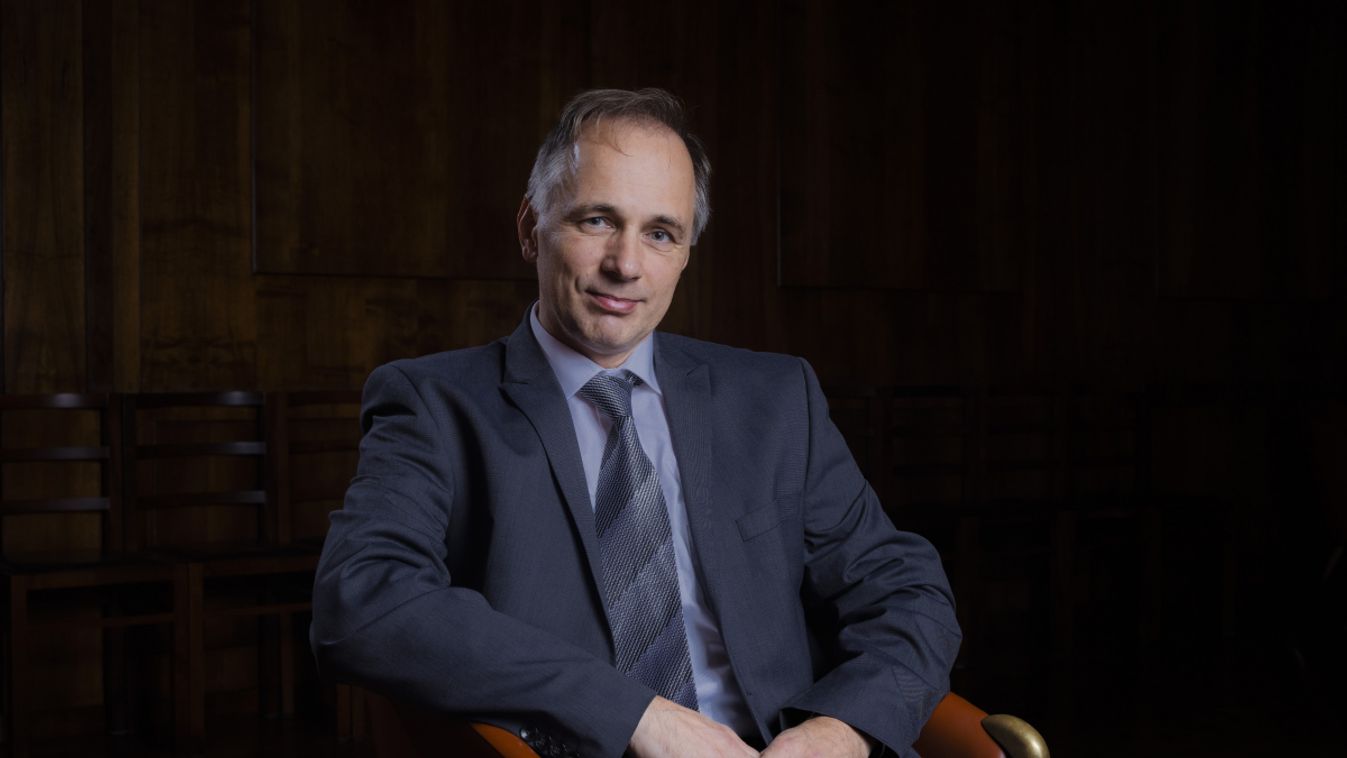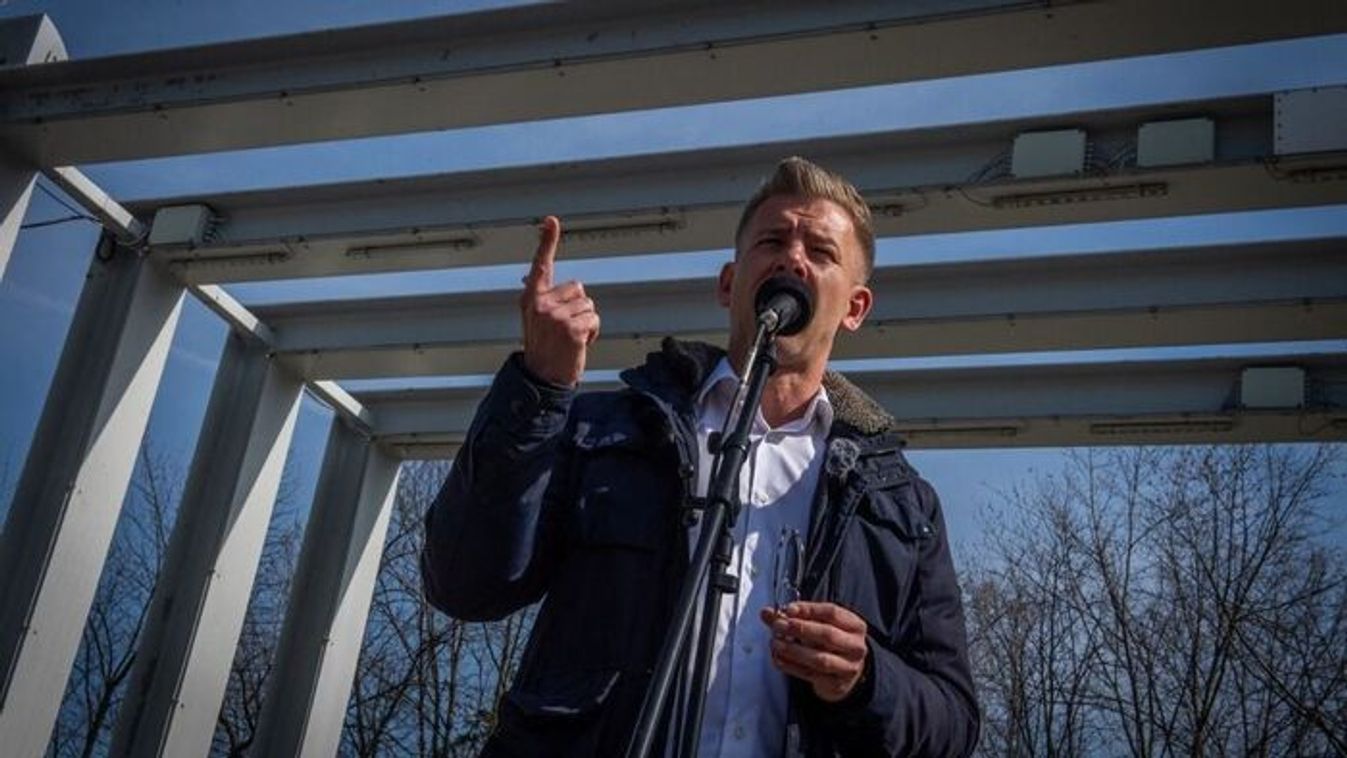Itt a legfrissebb közvélemény-kutatás: így áll most a Fidesz és a Tisza Párt

Továbbra is zajlik a közvélemény-kutatások „háborúja”, utánajártunk, mekkora a valós különbség a Fidesz és a Tisza között.

“Using force or threat to glue us together is not democratic. In my childhood, I lived in a state which was forced to be together. It did not end well. It never does. I have learned that. Instead, my approach to Europe is a very cautious bottom-up approach which would respect diversity. Democracy is indeed a slow and difficult, challenging process. It takes time; it is not always easy to understand. It is challenging all the time” – Rajko Knez, President of the Constitutional Court of Slovenia in a conversation with Lénárd Sándor.

In the development of the law of the European Union as well as in defining its relation to national laws and constitutions, the Court of Justice of the European Union (CJEU) has been playing a leading role for decades. From the principle of primacy or supremacy of the EU law to the state liability for failing to transpose EU legislation are all judicial doctrines. How, in your view does the strong role of the CJEU influence the development of the integration overall?

In my view, the development of European integration would not be possible without these “inventions” of the CJEU. When this process began in the 1950s, the cold war was unfolding. The integration process (indeed with the economic idea in its essence, i.e. with a vision of economic prosperity) helped protect the European continent, and I think the integration is still necessary and unavoidable. There is no such continent in the World with so many different nations, cultures and languages. I still remember the 1980s when I started to show interest in the economic integration in the EEC, outside my home country, how borders separated us from each other. Through these doctrines, the CJEU helped create the preconditions of a flourishing economic integration along with the internal market.
However, the shift from an economic to a political integration brought more complex issues. I remember the UK warning about the dangers of exceeding the economic community. As opposed to the internal market, there are much more and more divergent interests in the field of political integration that have to be balanced against each other. The problem I see is that the integration process came to a certain level where the differences are more considerable and the interests are much more divergent. While the pure economic integration used to be marked by cohesive forces whereby the Member States stuck together, having the same vision as well as the same interest (i.e. this being the definition of a community), nowadays, there are forces that pull us apart. We entered an era of disintegration. The CJEU could have a vital role in showing a path forward beyond politics and political interests.
We can also witness that since the 1970s, but especially in the past decade, constitutional courts or equivalent judicial forums of Member States have been involved in reviewing union law based on the provisions of national constitutions. What potential roles do national constitutional courts play in the development of the EU law in your view?
I think we have a triangle of fundamental rules: the national constitutions, the European Convention on Human Rights, and the European Union's (primary) law, including the Charter of Fundamental Rights. We should see them in a more horizontal way and not so much vertically. The problem I see is that when the CJEU makes a judgement in a preliminary ruling procedure on human rights issues asked by any regular court, the highest national courts (Constitutional courts or Supreme courts) no longer have a chance to be heard in the case and on asked question. I do not think it is the most suitable for the legitimacy of the European Union. The CJEU, of course, has always liked to “talk” with ordinary national courts since the very beginning in the ‘50s. Logically, this is in the very essence of the preliminary ruling procedure (the EU law shall be correctly (directly) applied as soon as possible, not waiting to the last possible domestic instance of court procedure. However, when it comes to the most important issues, such as, for example, national identity, the highest national courts should also be involved in the decision-making process. So, I think we need to modify the design of the preliminary ruling procedure to a certain extent. When it comes to this kind of question involving constitutional values, national courts should be given opportunities to be part of the proceeding of the CJEU. It is quite ambivalent that the European Commission and national governments have the right to intervene in the CJEU proceeding but the highest national courts, who would otherwise have the final words in these matters at home, do not. This would not even require the modification of the Treaties and would increase dramatically the legitimacy of these rulings, which refer to the core questions of the Member States (i.e. not to every preliminary ruling question).
There will always be different approaches and understandings as our continent is so colourful. I do not think that we can imagine that everything will be united. We shall respect diversity. Nobody is talking anymore about being “united in diversity”, as this was the case decades ago. This was a motto of the EU.
The bigger we are, the more we should respect the differences.
Defining these differences involve being heard by the highest courts in Europe. Namely, it might be that some differences are not acceptable to common European standards, and political consequences might follow. But, the involvement of the highest courts to be heard would raise the legitimacy of a decision (that, for example, certain Member States would not like).
The CJEU and the national constitutional courts offer two different perspectives on the European integration. The former’s view gravitates toward a federal state, while the latter’s conception is anchored in the cooperation of sovereign states. Is there a way to reconcile these two concepts?
I would be careful with these two extreme visions. When we are talking about European integration, there is always a certain level of sovereignty at stake. During the whole history of European integration we have struggled to find where the limits of sovereignty transfers are. I think that as long as the Member States only confer certain limited powers upon the European Union, it remains a path we can follow.
The more remarkable is the diversity in the integration, the softener the approach should be
and we should be all heard. Using force or threat to glue us together is not democratic. In my childhood, I lived in a state which was forced to be together. It did not end well. It never does. I have learned that. Instead, my approach to Europe is a very cautious bottom-up approach which would respect diversity.
Democracy is indeed a slow and difficult, challenging process.
It takes time; it is not always easy to understand. It is challenging all the time.
When it comes to differences, somebody will have to decide about these differences and (not) allow them. The CJEU has a final word. However, highest national courts (not only a particular political option currently in power in a certain Member State) could be heard and contribute to the decisions of the CJEU.
The recently launched Conference on the Future of Europe aspires to provide a forum for discussion about the potential reforms of the EU as well as about the future of the European continent. Hence, it also offers a unique opportunity to discuss questions concerning the reform of the competences or the composition of the CJEU as well as the interplays of national constitutional courts and the CJEU. What reform steps would you think worth considering in order to achieve a harmonious cooperation as well as an equilibrium that aims to better respect the constitutional structures and identities of the Member States?
I think the judiciary can play an important role whenever it comes to differences in communities and societies. This has been proven in history. Also, in the EU history; the EU received Nobel Peace Prize in 2012, and to a great extent, my belief, due to the CJEU that was able to lead the path in a time of crises and struggles when the institutions and the Member States could not have found a path forward. Using the law not the interests, the judiciary can balance the various interests at stake and show reasoned course forward. This might be true in this case as well.
What we lack in the European Union is a widely acceptable vision
(in the past, we had ones, like rebuilding in the war demolished Europe, economic prosperity, the internal market that shall eliminate administrative barriers, also the state borders, free movements, one currency etc.) All these were achieved. Nations of Europe widely agreed. We tend to forget about the path we had to undertake to get here and to be successful. The CJEU was and still is a crucial link in the chain. However, the situation nowadays is much more complex.
On the one hand, we achieved a lot, but political (not economic) integration wanted to go on without the “topics” that could give the nation of Europe a widely acceptable vision.
No politic can survive without a vision to which the community will follow.
This I experienced so far in my life. Similarly, and essential, we shall avoid a division of the highest courts in Europe: the Strasbourg, the Luxemburg and the highest national courts. The judicial authority shall be united in order to offer trust, confidence. Therefore, we should also nurture a judicial dialogue beyond the mere adjudicating and beyond the judgements while trying to define what our relations are. Deciding on questions of national identities without the involvement of the competent highest national court is not a good sign, and it leads to controversial decisions such as last year PSPP decision of the German Constitutional Court. It is hard to accept for citizens that the core constitutional questions in their countries would be resolved without a national supreme (constitutional) judicial power.
The more complex the questions become, the more the highest national courts should be involved in the decision-making.
Making the decisions of the CJEU more inclusive would be a significant step forward of the Conference on the Future of Europe both for the citizens of Europe and the judiciaries.
How could public law reforms such as the concept of the “reverse” preliminary ruling procedure that would require the CJEU to turn to the highest national courts might enhance or solidify the European cooperation in the future?
Although
I would love to see the “reverse” preliminary ruling procedure
being introduced (as I also wrote in articles), this would require the modification of the Treaties. A change in the Treaties is very challenging to achieve, especially in such a divided European atmosphere and with 27 Member States. However, suppose the highest national courts are instead empowered (as in intervenient) to join in certain CJEU proceedings. In that case, they could gain the right to intervene, which would be already a huge step forward. I think I am not wrong that this is possible with changes of internal procedural acts of the CJEU only.